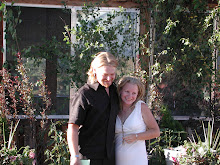"Find the cost of freedom, buried in the ground. Mother Earth will swallow you. Lay your body down."
Those Crosby, Stills, Nash and Young lyrics have been ringing in my ears for about five years now. I must not be alone in this. I recently received an e-mail on this subject, from a reader who calculated that freedom's price is independent thought and responsibility for actions.
Now that's a price we can all afford. But more often we hear of a much higher price. The CSNY song alludes to it, and legions of veterans confirm it. It is a cost measured in lives.
These days, the cost of freedom looks to be very high, indeed. Wars are fought for many reasons, but beneath ideological, religious and cultural disputes, one almost always finds economic interests at issue.
Turf wars. Water wars, oil wars, range wars and the list goes on. Control of resources is an age-old quest, and one that is predicated on a paradigm of scarcity.
News headlines from around the world now tell of food shortages. "A hungry mob is an angry mob," Third World prophet Bob Marley warned in his song "Them belly full (But we hungry)."
Is this really the nature of our world? Is there just simply not enough to go around? Are hardship and scarcity the rule of life on Earth, or should they be the exception to the rule?
Could it be that in rampant scarcity, we are witnessing some massive failures in agricultural production and policy? How many of our grandparents and great-grandparents would be bewildered at the notion of food rationing in 21st-century America? And how many predicted just such a consequence of policies promoting consolidation in food production?
The farmer's direct experience tells of two different potential paradigms: one of intractable scarcity and one of overwhelming abundance. Our national and international policy choices, coupled with our individual decisions and actions, determine which outcome we get.
On the one hand, the farmer finds challenges around every corner: rising feed costs, competing demands for irrigation water and the loss of productive farmland to development, to name just a few.
On the other hand, some farmers may find a glimmer of hope in nature's bounty. Have you ever had more production than you knew what to do with? More milk than you could sell? A bumper crop of zucchini, perhaps?
It is this very specter of overproduction that drives many of our farm policies. Subsidy programs limit production in an attempt to provide stability for the agribusiness industry.
Perhaps we've got the equation backwards. What would happen if farm policy was reversed to encourage abundance, not scarcity? To my thinking, natural abundance yields far greater stability than artificial scarcity ever could.
Like Martin Luther King Jr., I also have a dream. I dream of a shift in farm policy and practice that creates such wild abundance that farming transforms from a business dependent on consumers to a way of life sustaining all other creation and production.
After Mother Earth has swallowed so many lives laid down in pursuit of freedom, is it possible that we can pay another price instead? And if such a thing is possible, shouldn't we redouble our efforts in that quest?
Buried in the ground there is another source of freedom, I think. It is found in the organic life that wiggles and squirms through fertile soil. The way to tap that abundant life is through the sensible and ethical application of human intellect, heartfelt spirit and some day-to-day tender loving care.
For these reasons, "Grow Freedom" is now the motto I live by.
My next column, timed with Memorial Day, will focus on a developing alliance between farmers and veterans in pursuit of an agricultural path toward freedom. I welcome your thoughts on this important matter.
Subscribe to:
Post Comments (Atom)

No comments:
Post a Comment